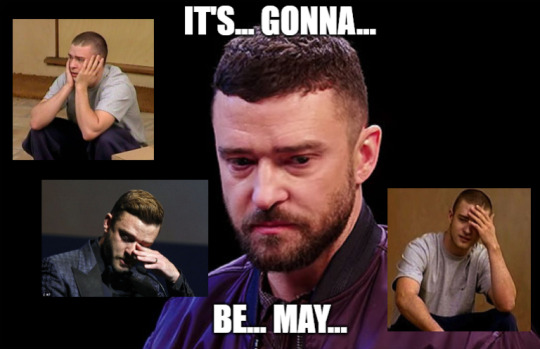pakistani-canadian. xv. entj. langblr | eater of cheese, professional water-drinker🇳🇱🇹🇷🇸🇪
Don't wanna be here? Send us removal request.
Text
Donna Tartt be like. I will include entire sentences in foreign languages. I will absolutely not translate them under any circumstances. What? You're not omnilingual? You're a little American bitch? Fuck you.
5K notes
·
View notes
Text
dark academia is just when the lightbulbs in the library haven’t been replaced in nine years
53K notes
·
View notes
Text
Religion | 宗教

God 上帝 shàngdì
Jesus Christ 耶稣基督 yēsūjīdū
Christianity 基督宗教 jīdū zōngjiào
Clergyman 教士 jiàoshì
Priest 神父 shénfu
Bishop 主教 zhǔjiào
Mass 弥撒 mísa
To pray 祈祷 qídǎo
Cross 十字架 shízìjià
The Bible 圣经 shèngjīng
Religious service 礼拜 lǐbài
Church 教堂 jiàotáng
Catholicism 天主教 tiānzhǔjiào
The Orthodox Church 东正教 dōngzhèngjiào
Buddhism 佛教 fójiào
Bodhisattva 菩萨 púsà
Buddha 佛 fó
Bodhisattva Guanshiyin 观音 guānyīn
Temple 寺庙 sìmiào
Sutra 佛经 fójīng
Buddhist monk 和尚 héshang
Buddhist nun 尼姑 nígū
Taoism 道教 dàojiào
Taoist temple 道观 dàoguàn
Immortal 神仙 shénxiān
Taoist priest 道士 dàoshi
Islamism 伊斯兰教 yīsīlánjiāo
The Koran 古兰经 gǔlánjīng
Imam 阿訇 āhōng
The Mosque 清真寺 qīngzhēnsì
Muslim 穆斯林 mùsīlín
174 notes
·
View notes
Text
ACADEMIC PHRASE BANK MASTERPOST: CONNECTING WORDS
Addition
To begin with,
In the first place,
Firstly,
The first reason
Additionally
Furthermore,
Another reason why
Secondly, Thirdly,
Next,
Pursuing this further,
Also
Lastly, Finally
In the same way,
Comparison
Similarly,
In the same way,
Likewise,
As with,
Equally,
Contrasting
However,
Nevertheless,
On the other hand,
Even so
Alternatively
At the same time
Otherwise
Instead
Conversely
Result
Hence
Therefore
Accordingly
Consequently
Thus
As a result
In consequence
For this reason
For this purpose
Time
Meanwhile
Presently
At last
Finally
Immediately
Thereafter
At that time
Eventually
Currently
Subsequently
In the meantime
Importance
Importantly
Especially
Above all
With attention to
Example
For example
For instance
That is
Such as
As revealed by
Illustrated by
Specifically
In particular
For one thing
This can be seen by
An instance of this
Literary
Clarifies
Conveys
Depicts
Demonstrates
Determines
Displays
Emphasizes
Establishes
Explains
Exemplifies
Highlights
Illustrates
Indicates
Potrays
Represents
Shows
Signifies
Suggests
Beginnings/Causes/Effects
Affects
Generates
Ignites
Impacts
Imposes
Influences
Initiates
Introduces
Involves
Launches
Leads to
Presents
Promotes
Prompts
Results in
Summary
In conclusion,
To sum it all up,
To summarize,
In the final analysis
You can see why …
Finally,
Therefore,
In summary,
In short,
In brief,
63K notes
·
View notes
Text
Small Educational Challenges

These are some small challenges that you could do for a period of time in order to improve yourself and your life OR to learn about something new. These are just inspirations , you can choose one and do it in your way and FOR HOW LONG YOU PLEASE.
Food
cook something new once a week ( or every day)
Try vegetarian or vegan diet
Try an enviorment friendly food challenge
Languages
Try learning and Translating a song once a week
Try any langblr challenge
Books and entertainment
Try to read one book a month
Try to watch one educational documentary once a week
Try to follow an educational tv serie
Follow a podcast serie
Other
smile to all strangers you see
Try to not lie at all
One hour of physical activity that you have never done before.
Law of attraction challenge
1K notes
·
View notes
Text
Doing online classes really just be like *has a list of assignments* *have no motivation what so ever* *watch random youtube videos* *stresses* *looks at assignment list again* *stresses more* *eat a snack* *sudden burst of productivity that last only about five minutes* *rewards self by checking phone* *stresses*
67K notes
·
View notes
Photo

here are 5 of the big things i’ve learned over the past two years and also recently during exams! i feel like i’ve come so far as a student in terms of studying, work ethic and self-discipline, so i wanted to share all the important tips i learned and will definitely re-use in the coming years :)
1: the best way to find your preferred study method is through trial and error
if you are given the chance of taking an end of unit/topic test that doesn’t count towards your final grade, use it to test out revision techniques and find out which one is best for you! throughout all of year 10 i tried different things forevery test i had from simply notes to mind maps to flashcards and to summary sheets in the attempt to find the perfect study method for me. doing this early on in your course where smaller tests don’t really matter is the perfect opportunity for taking risks; this is why it’s called trial and error. some techniques won’t work for you, and you might get a bad grade, but that is how you learn! then, when you get exams that really matter, you’ll know exactly what to do to achieve that dream grade. (although, i understand that in some countries every test counts to your final grade- a work around for this would be to give yourself a mock test deadline if you really want to find out which study method suits you best)
2: self-discipline (rather than motivation) takes time and practice
motivation is temporary; self-discipline is long-lasting. there are a million articles on how to boost motivation, but if you want to develop a consistent work ethic it’s really important to have self-discipline. of course, this can be really hard to achieve; but establishing your goals and sticking to them is crucial. start a study schedule with a corresponding self-care routine (this can be anything from skincare to stretching to journaling) as well as some leisure time and try to stick to it! don’t beat yourself up if you find it hard at the beginning; just remind yourself of your goals, be clear on what you want in the future, and start again. over time it’ll get easier to get up, work hard, and eventually achieve your goals 🤓(also try my study tracker if you need help planning/overviewing your week )
3: active recall is crucial!
i’ve watched many people (myself included) put endless hours in studying and come out with lower grades than they were expecting- while it isn’t always the case, what i’ve noticed is that reading the textbook and making notes from it will help you understand the topic and make you feel like you know everything, but when it comes to recalling specific info it doesn’t really work. although there are some people who can just read the textbook and all the detail is easily deposited into their brain (ugh), for most people an active recall technique is needed. if you hate flashcards, don’t worry! there are plenty of different methods like blurting, teaching others, repeating things out loud until you can say it without looking, solving questions/worksheets etcetera. over time, your brain gets better and better at memorizing and learning that hopefully by the time your exams roll around you’ll be able to recall everything you need 😊
4: create study resources as you are going through your course
this is probably slightly obvious, but so many times during this exam season i’ve kicked myself for not making sets of flashcards or mind maps sooner. instead of making these things and taking huge chunks of time doing passive revision, i could be practicing them and memorizing instead! one of the best things to do during your course when you have free time is to sit down, open the specification/syllabus/textbook and make study resources that you’ll be able to confidently use during exam season. ideally, you could make them after finishing each topic/unit in class, with as much specific information that you think is relevant. it is so much faster to condense flashcards, mind maps or summary sheets when exams come around rather than to have to make whole new ones because there wasn’t enough detail/information.
5: if you are given a specification or syllabus, use it!!
my favorite teacher always told us that our specs should be printed out, annotated, highlighted, and worn from so much use; i didn’t really heed his advice until right before exams, but it was probably the best advice i ever received for the sciences. your specification/syllabus literally tells you everything that might be in the exam, so use it! print them out at 85% so that you have enough margin space to scribble; i used a traffic light method where i highlighted things i knew well in green, things that i needed to revise a bit further in orange and stuff that i really don’t understand and needed to study in red. if you’re struggling to grasp the content within your subject or feel like you’ve got gaps in your knowledge, this method literally points out your strengths and weaknesses for you!
3K notes
·
View notes
Text
2020 will be my year because i will make it my year
2K notes
·
View notes
Text
considering how much i want to write, i’m very good at not writing
16K notes
·
View notes
Text
looking for more studyblrs/langblrs!
hellooooo, can you please reblog (or like) this if you are an active studyblr/langblr?
+ feel free to message me and be my friend! 🍓
187 notes
·
View notes
Text
Let’s Talk About について & に対して
Sorry for the delay, I should have finished this post like a month ago…
In response to someone’s question, I will briefly explain the differences between these two similar pieces of grammar.
について this means “about” and is use for people or objects that are targets of thoughts and speech. Used with verbs such as 話す、聞く、考える、書く、and 調べる . This always attaches to a noun.
今日は、日本の歴史について話す。
将来についての夢を語った。
その点については全面的に賛成はできなかった。
に対して means “towards” or “against”, ~に向けて .This is used to show who/what the target of an attitude, feeling, or non-physical action is. Expressions of actions or attitudes appealing to the target follow. This use of に対して only attaches to nouns.
今のランさんの発言に対して、何か反対の意見がある方は手を挙げてください。
私の質問に対して何も答えてくれなかった。
失敗に対して責任を感じている。
More explanations can be found on wasabi-jpn and maggie sensei.
257 notes
·
View notes
Text
Still a Sentence.
Sometimes, Russian sentences may have neither subject nor verb, but they still are legit sentences!
Чаю бы сейчас! - literally: Some tea (would) now! I would have some tea now! I really want some tea, but I suspect it is a difficult task for now, hardly doable. This is how one can express a wish and also say that “I really appreciate all the efforts you are going to take to satisfy it”. Quite a polite, yet not overly formal way to ask for something.
Не до тебя сейчас. - “I have no time for you now, there are many other problems I have to handle now.” Не до + Genitive - is a structure for “I don’t want to do that now” or “I don’t think that it is appropriate to do that now”. Не до смеха! - It is not a good time to laugh, (laughter would be inappropriate), take it seriously and appreciate the scale of the problems!
It was your random grammar lesson.
185 notes
·
View notes






